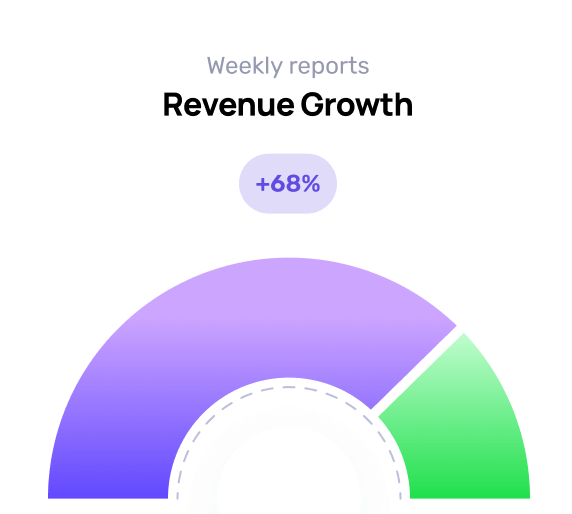Local SEO Strategy
Local SEO is the process of optimizing your online presence to attract more business from relevant local searches. These searches typically occur on Google and other search engines, often involving queries like “near me” or a specific city or town name.




Based on 400k customers reviews


Why is Local SEO Important?

Target Local Customers
Over 46% of Google searches are looking for local information. Local SEO ensures your business appears when potential customers search for nearby services.

Increase Foot Traffic
Optimized local listings lead to more in-store visits, calls, and inquiries from local customers.

Build Trust and Credibility
Businesses with strong local SEO efforts often appear at the top of search results, instilling confidence in potential customers.

Outrank Competitors
A well-optimized local SEO strategy can help you outperform competitors in your area.

">
01. Google Business Profile (GBP)
- Claim and verify your Google Business Profile (formerly Google My Business).
- Include complete details like business name, address, phone number, website, and hours of operation.
- Add high-quality images, respond to reviews, and update information regularly.

">
02. NAP Consistency
Ensure your Name, Address, and Phone number (NAP) are consistent across your website, directories, and social media profiles.

">
03. Local Keywords
- Optimize your website with geo-specific keywords (e.g., "Best Italian restaurant in New York").
- Use tools like Google Keyword Planner or Ubersuggest to find relevant local search terms.

">
04. Local Citations
- Get listed on online directories like Yelp, Bing Places, and industry-specific platforms.
- Accurate citations improve your local visibility and credibility.

">
05. Customer Reviews
- Positive reviews on Google, Yelp, and other platforms enhance your local search rankings.
- Encourage happy customers to leave reviews and always respond to feedback professionally.

">
06. Mobile Optimization
- Ensure your website is mobile-friendly, as most local searches are conducted on smartphones.
- Use responsive design, fast-loading pages, and clear navigation.

">
07. On-Page SEO
- Optimize your website’s meta tags, headers, and content with local keywords.
- Include your location on landing pages, contact pages, and service pages.

">
08. Local Backlinks
- Build backlinks from local websites, blogs, and organizations.
- Partner with local influencers or sponsor community events for mentions.
Common Mistakes in Local SEO


01. Ignoring Google Business Profile
Not optimizing GBP can result in missed opportunities.
02. Inconsistent NAP Details
Variations in your business information confuse search engines and customers.
03. Neglecting Reviews
Poor reviews or unaddressed feedback can harm your local reputation.
04. Overlooking Mobile Users
A non-mobile-friendly site leads to lower engagement and conversions.
FAQ
What is Local SEO?
Local SEO is the practice of optimizing your online presence to attract more business from relevant local searches. It’s ideal for businesses with a physical location or those serving a specific geographic area.
Why is Local SEO important?
Local SEO helps businesses appear in local search results, increasing visibility, foot traffic, and trust among nearby customers.
How does Google Business Profile affect Local SEO?
Google Business Profile (GBP) is essential for Local SEO. It enhances your visibility in Google search and Maps, allowing customers to find accurate information about your business.
What are local keywords?
Local keywords are search terms that include geographic modifiers, such as "dentist near me" or "plumber in Chicago." They help target local audiences effectively.
Can Local SEO benefit service-based businesses without a physical location?
Yes, service-based businesses can use Local SEO to target customers in specific areas by optimizing service-area listings and content.
Can link insertion harm my website?
If done improperly—such as inserting links in irrelevant or spammy content—it can lead to penalties. Always ensure your link insertion strategy follows Google’s guidelines.
Latest from insights

The Crucial Role of SEO in Today’s Advertising Agency

More than just buzz words for marketing concepts of SEO

